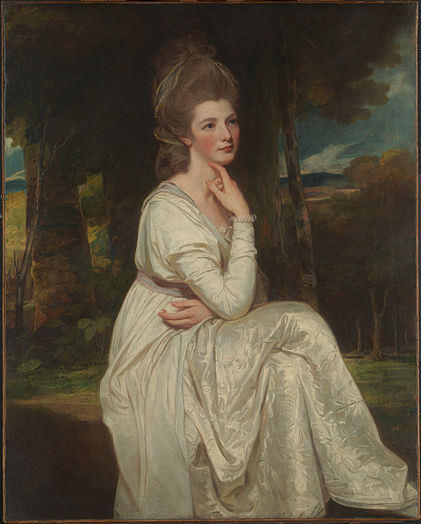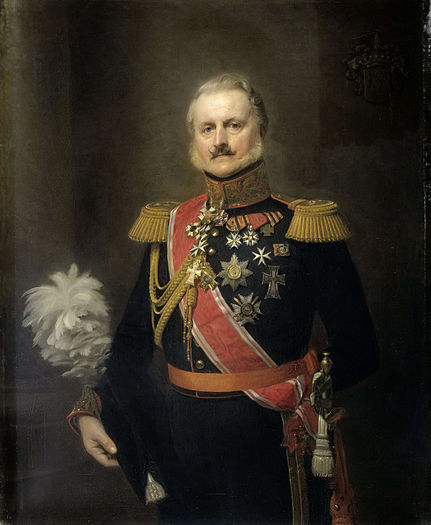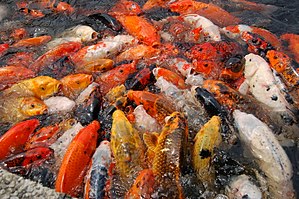| Revision as of 07:11, 21 December 2023 view sourceWegweiserBot (talk | contribs)Bots, Extended confirmed users2,754 edits Update article with metadata template for subheadings. Count: 0803 / (Wegweiser V2.0)← Previous edit | Revision as of 02:14, 6 January 2024 view source JPxG (talk | contribs)Edit filter managers, Autopatrolled, Administrators118,955 editsm Protected "Misplaced Pages:Misplaced Pages Signpost/2015-02-18/Featured content": old newspaper articles don't need to be continually updated, the only real edits expected here are from bots/scripts, and vandalism is extremely hard to monitor ( (indefinite) (indefinite))Next edit → | ||
| (No difference) | |||
Revision as of 02:14, 6 January 2024
A load of bull-sized breakfast behind the restaurant, Koi feeding, a moray eel, Spaghetti Nebula and other fishy, fishy fish: Five pictures, six lists, and seventeen pictures were promoted
Featured content
A load of bull-sized breakfast behind the restaurant, koi feeding, a moray eel, Spaghetti Nebula and other fishy, fishy fish
Contribute — Share this By Adam Cuerden, WPPilot, Hafspajen, Gamaliel and Pine
Featured articles
Five featured articles were promoted this week.

- James B. Weaver (nominated by Coemgenus) James Baird Weaver was a member of the United States House of Representatives and two-time candidate for President of the United States. After several unsuccessful attempts at Republican nominations to various offices, and growing dissatisfied with the conservative wing of the party, in 1877 Weaver switched to the Greenback Party, which supported increasing the money supply and regulating big business. As the Greenback Party fell apart, a new left-wing third party, the Populists, arose. Weaver helped to organize the party and was their nominee for President in 1892. Many party insiders, however, were wary of Weaver's association with the Prohibition movement and preferred to remain uncommitted on the divisive issue.
- I Never Liked You (nominated by Curly Turkey) I Never Liked You is an autobiographical graphic novel by Canadian cartoonist Chester Brown, originally serialized as Fuck in the pages of his comic book Yummy Fur. Brown was at the forefront of the 90s wave of autobiographical comics. Since cartoonists usually spent most of their days at the drawing table trying to eke out a living, here autobiography didn't mean high adventure, it meant the minutiae of human existence. These cartoonists put their own lives under the microscope, unflinchingly portraying their weird emotional states, sexual fantasies, and masturbatory habits. In I Never Liked You, Brown tells the story of his introverted teenage years in a Montreal suburb. He is painfully unable to express emotion, especially to women, including his dying mother and the girl next door he is interested in. The powerful story and minimalist style drew critical adulation and awards, so if you are in the mood to revisit your awkward adolescence, this is the book for you.
- Saint Francis Receiving the Stigmata (van Eyck) (nominated by Ceoil and Victoriaearle) A new featured article from our exellent featured art article editor team Victoria and Ceoil (is this number 45 or?) Saint Francis of Assisi Receiving the Stigmata is the name given to two unsigned paintings completed around 1428–32 that art historians usually attribute to the great Flemish artist Jan van Eyck. The panels are nearly identical, apart from a difference in size. Both are small paintings: the larger measures 29.3 cm x 33.4 cm and is in the Sabauda Gallery in Turin, Italy; the smaller panel is 12.7 cm x 14.6 cm and in the Philadelphia Museum of Art. The paintings show Saint Francis of Assisi, who is shown kneeling by a rock, in prayer as he receives the stigmata of the crucified Christ on the palms of his hands and soles of his feet.
- The Thrill Book (nominated by Mike Christie) The Thrill Book was a short-lived US pulp magazine published by Street & Smith in 1919. It was intended to carry "different" stories: this meant stories that were unusual or unclassifiable, which in practice often meant that the stories were fantasy or science fiction. Although The Thrill Book has been described as the first American pulp to specialize in fantasy and science fiction, this description is not supported by recent historians of the field, who regard it instead as a stepping stone on the path that ultimately led to Weird Tales and Amazing Stories, the first true specialized magazines in the fields of weird fiction and science fiction respectively. Street & Smith cancelled the magazine after the sixteenth issue, dated October 15. A printers' strike has often been suggested as the reason.
- William of Wrotham (nominated by Ealdgyth) William of Wrotham was a larger than life figure from the dramatic days of the English middle ages. When Robin Hood roamed Sherwood Forest, William was having action-packed adventures as... Archdeacon of Taunton and "keeper of ports". Like the Sheriff of Nottingham, William was a minion of King John, usually depicted as so villainous that the Magna Carta had to be forced upon him by his own rebellious barons. One of those rebels was William, who until that point had ably served John in a number of ecclesiastical and naval posts. After a brief time in exile, William was back in the good graces of John and his son and successor Henry III. Chronicler Roger of Wendover dubbed him one of John's "most wicked counsellors", but later historians called him a distinguished administrator.
Featured lists
Six featured lists were promoted this week.

- Preity Zinta filmography (nominated by FrB.TG) Preity Zinta is an Indian actress known for her work in Bollywood films. She made her debut in 1998 with a supporting role in the drama Dil Se.. and starred in the commercially successful thriller Soldier. In 2001, Zinta featured in the dramedy Dil Chahta Hai, which is cited in the media as a defining film of Hindi cinema. She starred in two blockbusters—the science fiction film Koi... Mil Gaya and the drama Kal Ho Naa Ho.
- 67th Academy Awards (nominated by Birdienest81) Held in March 1995, sentimental favorite Forrest Gump won Best Picture over four better 1994 films and took away 6 wins out of 13 nominations. To this day, some insist it should have been Pulp Fiction's year, and while the film catapulted Quentin Tarantino to stardom, out of 6 nominations it only went home with Best Original Screenplay. Gump earned Tom Hanks his second consecutive Best Actor, making him and Spencer Tracy the only winners to do so in this category. Jessica Lange got her second Oscar and first Best Actress award, while Best Supporting Actress Dianne Wiest became the first person to win two acting Oscars for performances in films directed by the same person, Woody Allen. Best Supporting Actor winner Martin Landau was doing some of the best work of his career in his 60s and capped that with a tour de force as film star Bela Lugosi in Tim Burton's Ed Wood, a film inexplicably overlooked for a Best Picture nomination. At the ceremony, when the orchestra tried to play him offstage he pounded his fist on the podium and shouted "No!", angry because he was unable to thank Lugosi. Whovians take note, future Doctor Peter Capaldi shared the Best Live Action Short award for writing and directing Franz Kafka's It's a Wonderful Life, only the fifth tie for an award in Oscar history.
- List of municipalities in Yukon : (Nominators Mattximus and Hwy43) Yukon is the second-most populous of Canada's three territories, with 33,897 residents as of 2011. Over two-thirds of the population of Yukon (23,276 residents; 68.7%) reside in Whitehorse, the largest municipality in the territory. It is also the largest municipality by land area at 416.54 km (160.83 sq mi).
- Vidya Balan filmography (nominated by Krimuk90) Vidya Balan is an Indian actress known for her work in Bollywood films. She made her acting debut in 1995 with the sitcom Hum Paanch. Vidya had five film releases in 2007 and played a variety of roles in them, including a woman suffering from multiple sclerosis in Mani Ratnam's semi-biographical drama Guru. From 2009 to 2012, Vidya starred in five consecutive films that garnered her widespread praise. She is the recipient of several awards, including a National Film Award, five Filmfare Awards, and five Screen Awards, and was awarded the Padma Shri by the Government of India in 2014.
- List of World Series Cricket international centuries (nominated by Harrias) World Series Cricket (WSC) was a professional cricket competition established by Kerry Packer which ran from 1977 and 1979. Packer set the competition up after failing to gain the rights to show Test cricket on his Channel Nine television channel. It was opposed by the International Cricket Conference (ICC).
- Julia Roberts filmography (nominated by Cowlibob) Julia Roberts is an American actress and producer who made her debut in the 1987 direct-to-video feature Firehouse. Roberts made her breakthrough the following year by starring in the coming-of-age film Mystic Pizza (1988). Roberts' next role was opposite Richard Gere in the romantic comedy Pretty Woman (1990). The film is estimated to have sold over 42 million tickets in North America—the most for a romantic comedy in the United States as of 2014. For her performance, Roberts won the Golden Globe Award for Best Actress (Musical or Comedy). Two years later, Roberts starred in the legal thriller The Pelican Brief, an adaptation of the John Grisham novel of the same name. She also starred in the Ocean's Eleven series and the title role in Erin Brokovich, which earned her an Academy Award for Best Actress.
Featured pictures
-
 Lady Elizabeth Hamilton, Countess of Derby I like that, could be a new style bonnet
Lady Elizabeth Hamilton, Countess of Derby I like that, could be a new style bonnet
-
 Doge Leonardo Loredan 500 hundred years later he is still waiting for his hat style to make a comeback
Doge Leonardo Loredan 500 hundred years later he is still waiting for his hat style to make a comeback
-
 Baron van Omphal Not me, I like my feather duster
Baron van Omphal Not me, I like my feather duster
Seventeen featured pictures were promoted this week.






- Zehnder's (created by Chris Woodrich, nominated by Crisco 1492) Zehnder's is a large restaurant in Frankenmuth, Michigan. The food, served family style, is generally American or midwestern-style, like chicken dinners, seafood, steaks, fresh baked goods, and European desserts. Originally built as the Exchange Hotel by Henry Reichle in 1856, in 1927, William Zehnder, Sr. purchased the hotel and remodeled the building, including redesigning the facade to look like Mount Vernon. In the 1980s, it was one of the ten largest restaurants in the United States, with seating for 1,500 people. Zehnder's serves almost a million people annually. John Zehnder, the executive chef and food and beverage manager at Zehnder's, received the 2011 Hermann G. Rusch Chef's Achievement Award from the American Culinary Federation.
- Koi feeding (created by Arden, uploaded by AgnosticPreachersKid ) Koi is a pet fish, kept in ponds because they are believed to bring luck and money to the house. These guys are fighting for the food in a pond at the United States National Arboretum. The koi varieties are distinguished by coloration, patterning, and scalation. Some of the major colors are white, black, red, yellow, blue, and cream. Common carp were bred to a new breed, the koi, with bright colors, in Japan in the 1820s. By the 20th century, a number of color patterns had been established, most notably the red-and-white that is called Kohaku in Japanese. New koi varieties are still being actively developed.
- Antonie Frederik Jan Floris Jacob van Omphal (created by Herman Antonie de Bloeme, nominated by Crisco 1492) Antonie Frederik Jan Floris Jacob Baron van Omphal, painted by Herman Antonie de Bloeme, was a Dutch lieutenant-general and extraordinary aide-de-camp to William III of the Netherlands. He was very much awarded. Take a deep breath before you work through his long list of awards that can be admired on his chest too (or just jump to next entry): Baron van Omphal was awarded a knighthood in the Military William Order, was made a knight in the Military William Order, Grand Cross (1849) and commander (1857) in the Order of the Oak Crown, a knight of the Legion of Honour, a commander of the Guelph Order and the Order of the Dannebrog, a knight of the Order of St. John, of the Order of St. Anna second class with diamonds, of the Order of the Red Eagle second class, of the Order of the Sword with grand cross and of the Order of Saint Stanislaus first class, and a Grand Officer of the Order of Leopold (1859). Yeah, did we forget any? Van Omphal excelled in the service of the French during the Battle of Leipzig as first lieutenant of the Imperial Guard of Napoleon I. He also served in combat at Ciudad Real and during the French invasion of Russia.
- Apse of Our Lady of the Assumption (created by Chris Woodrich, nominated by Crisco 1492) Our Lady of the Assumption, located at 350 Huron Church Road in Windsor, Ontario, is the oldest continuous parish in Ontario. On July 7, 1842 the cornerstone of the present church was laid. Three years later, on July 20, 1845, the new 60 by 120 feet (18 m × 37 m) rectangular church was inaugurated under Fr. Pierre Point S.J. This rectangular structure forms the nave of the present parish. The church's high altar, spacious sanctuary, communion rail, and pipe organ make it an impressive and appropriate home for this historic liturgy, which attracts churchgoers from throughout southern Ontario and southeastern Michigan.
- Dancing Fairies (created by August Malmström , nominated by Hafspajen ) Dancing Fairies (Template:Lang-sv) is a painting by the Swedish painter August Malmström, depicting fairies dancing above the water in a moonlit landscape. The visionary painting depicts the morning mist turning into fairies, like the spirits of untamed nature. The fairies are dancing in the meadow in the twilight and they flow over the romantic landscape; one of them bends over the water to catch a glimpse of her own image. In Swedish folklore, the fairies were seen as delicate, tender, sensitive creatures, but also capricious and inclined to have their feelings hurt easily and take offence if not treated well and respected. Malmström, who was a professor at the Royal Swedish Academy of Arts, was one of the Swedish artists who aspired to create a national Swedish art. August Malmström's Dancing Fairies is a widely recognised work in its home country.
- Tungabhadra River near Hampi (created by Dey.sandip, nominated by National Names 2000) Coracles are round-shaped flat bottomed boats used on rivers as paddled fishing vessels. This picture depicts a pair of coracles on Tungabhadra River near Hampi, India. Coracles are oval in shape and can be made of wood with interwoven bamboo and waterproofed by using resin and coconut oil, or a framework of split and interwoven willow rods, tied with willow bark, with an outer layer made by animal skin, calico or canvas with a thin layer of tar, or nowadays even fibreglass, to make it waterproof. Coracles traditionally vary in design between different rivers; the Teifi river coracles are flat-bottomed for shallow rapids, while the Carmarthen coracle is rounder and deeper, for use on tidal waters on the Tywi.
- Breakfast Time (created by Hanna Pauli and nominated by SagaciousPhil) Breakfast Time is a painting completed in 1887 by the Swedish artist Hanna Pauli (1864–1940). An open-air painting, Breakfast Time depicts a tranquil scene with a table set for breakfast on a sunny morning. Placed at the bottom right of the picture is a table covered with a white tablecloth alongside a bench and two chairs. It is positioned under a tree with its branches stretching over the table. A maid is approaching the table carrying a tray in her hands. The light is reflected from the shiny objects on the table and from the white tablecloth. The painting was completed by Hanna Pauli by the summer of 1887; later that year, in the autumn, she became engaged to her future husband, Georg Pauli, who was also an artist. When the painting was completed she was still unmarried and the signature is her maiden name. Breakfast Time was exhibited at the World Exhibition in Paris in 1889 and the Chicago World's Fair in 1893.
- Beech Grove I (created by Gustav Klimt, nominated by Sca) Beech Grove I is a painting by Austrian artist Gustav Klimt, mostly known for his iconic painting The Kiss, which depicts two people passionately kissing each other lost in a gold turmoil. Klimt is noted as a master of eroticism and for his symbolist paintings, murals, sketches, and other objets d'art. He was one of the most prominent members of the Vienna Secession movement. Klimt's primary subject was the female body. It's safe to say that he liked his ladies, naked.
- Drainage of water in Lake Urmia (created by مانفی using NASA imagery, nominated by Crisco 1492) This animation of the Lake Urmia drought was created with NASA images mixed using cross dissolve transition in Adobe Premiere. Lake Urmia is an endorheic salt lake in northwestern Iran near Iran's border with Turkey. The recent drought has significantly decreased the annual amount of water the lake receives. This in turn has increased the salinity of the lake's water, lowering the lake's viability as home to thousands of migratory birds, including large flamingo populations. The salinity has particularly increased in the half of the lake north of the causeway. The lake is between the provinces of East Azerbaijan and West Azerbaijan in Iran and west of the southern portion of the Caspian Sea. At its full size, it was the largest lake in the Middle East and the sixth largest saltwater lake on Earth, with a surface area of approximately 5,200 km² (2,000 mile²), 140 km (87 mi) length, 55 km (34 mi) width, and 16 m (52 ft) depth. To infinity and beyond!
- Elizabeth Smith-Stanley, Countess of Derby (created by George Romney, nominated by Armbrust) This painting of Lady Elizabeth Hamilton is by George Romney. The Duchess of Hamilton was considered one of the most beautiful women of the day. George Romney is a kinsman of American businessmen and politicians George W. Romney (1907–1995) and Mitt Romney; their ancestor Miles Romney was George Romney's first cousin.
- Echidna catenata (created by Atsme, nominated by Atsme) A chain moray eel, pictured here below a feather duster worm. Echidna catenata, commonly known as the chain moray, is a moray eel found in shallow parts of the western Atlantic Ocean, where its range extends from Bermuda, Florida, and the Bahamas to the Antilles and Brazil. It occasionally makes its way into the aquarium trade. It is a carnivore and feeds on such organisms as crabs, which are the mainstay of its diet, shrimps, worms, and small fish.
- Burking Poor Old Mrs Constitution, Aged 141 (created by William Heath, restored and nominated by SchroCat) This is a political cartoon based on the Burke and Hare murders, a series of murders committed in Edinburgh, Scotland, over a period of about ten months in 1828. The killings were attributed to Irish immigrants William Burke and William Hare, who sold the corpses of their 16 victims to Doctor Robert Knox as dissection material for his well-attended anatomy lectures. Before 1832, there were insufficient cadavers legitimately available for the study and teaching of anatomy in Britain's medical schools. As medical science began to flourish in the early nineteenth century, the demand for cadavers rose sharply, but at the same time the legal supply failed to keep pace. One of the main sources—the bodies of executed criminals—had begun to dry up owing to a reduction in the number of executions being carried out in the early nineteenth century.
- Hayley Williams (created by Sven-Sebastian Sajak, nominated by Crisco 1492) Hayley Williams, lead vocalist of the American rock band Paramore, at Rock im Park 2013 in Nuremberg, Germany. Williams was discovered in 2003 by managers Dave Steunebrink and Richard Williams, who signed the 14-year-old to a two-year production deal. In the 2007 Kerrang! Readers' Poll she finished second to Evanescence's Amy Lee in the "Sexiest Female" category, going on to win the first place spot for "Sexiest Female" a year later in the 2008 poll, and again in the 2009, 2010, 2011 and 2012 poll
- Simeis 147 (created by Rogelio Bernal Andreo, nominated by The Herald) Photograph by Rogelio Bernal Andreo of Simeis 147. Simeis 147, also known as the Spaghetti Nebula, SNR G180.0-01.7 or Sharpless 2-240, is a supernova remnant (SNR) in the Milky Way, straddling the border between the constellations Auriga and Taurus. Discovered in 1952 at the Crimean Astrophysical Observatory using a 25-inch Schmidt-Cassegrain telescope, it is difficult to observe due to its extremely low brightness. This filamentary structure can be found in the constellation Taurus, close to the border of Aurigua, in roughly the same line of sight as the star Elnath. Approximately 3000 light years away, the nebula stretches about 150 light years across.
- Feral Charolais bull (created by The Photographer, nominated by Hafspajen) What a load of bull! Charolais cattle (French pronunciation: ) are a beef breed of cattle (Bos taurus) which originated in Charolais, around Charolles, in France. The breed tends to be large muscled, with bulls weighing up to 1,100 kilograms (2,400 lb) and cows up to 900 kilograms (2,000 lb). The breed was introduced in the southern US from Mexico in 1934. In Sierra Nevada de Mérida, Venezuela, following the rural flight of farmers, many Charolais cattle were abandoned; they have survived in the wild feeding on Espeletia schultzii, a high altitude shrub.
- Dome ceiling of the Sheikh Lotfollah Mosque (created by Nikopol, nominated by Fauzan) Sheikh Lotfollah Mosque Masjed-e Sheikh Lotf-ollāh) is one of the architectural masterpieces of Safavid Iranian architecture, standing on the eastern side of Naghsh-i Jahan Square, Isfahan, Iran. The Dome ceiling of the Sheikh Lotfollah Mosque was described by Robert Byron, a British travel writer, who wrote about this sight:
I know of no finer example of the Persian Islamic genius than the interior of the dome: The dome is inset with a network of lemon-shaped compartments, which decrease in size as they ascend towards the formalized peacock at the apex... The mihrāb in the west wall is enameled with tiny flowers on a deep blue meadow. Each part of the design, each plane, each repetition, each separate branch or blossom has its own somber beauty. But the beauty of the whole comes as you move. Again, the highlights are broken by the play of glazed and unglazed surfaces; so that with every step they rearrange themselves in countless shining patterns... I have never encountered splendor of this kind before.
- Portrait of Doge Leonardo Loredan (created by Giovanni Bellini, restored and nominated by SchroCat ) Leonardo Loredan was the Doge of Venice from 1501 to 1521. In Giovanni Bellini's painting, he is shown wearing his robes of state. The hat and ornate buttons are part of his official wardrobe. The sitter can be identified as Doge Loredan by comparing his features with portrait medals of him. The shape of the hat comes from the hood of a doublet. It is called a corno ducale and was a type of ducal hat, worn over a linen cap. The Portrait of Doge Leonardo Loredan is a painting by the Italian Renaissance master Giovanni Bellini, dating from 1501. It is on display in the National Gallery in London. It portrays Leonardo Loredan, Doge of Venice from 1501 to 1521, in his ceremonial garments with the corno worn over a linen cap, and is signed "IOANNES BELLINVS" on a cartellino.
-
 Dome ceiling of the Sheikh Lotfollah Mosque
Dome ceiling of the Sheikh Lotfollah Mosque
-
 Portrait of the 100 Hundred Beech Trees
Portrait of the 100 Hundred Beech Trees
-
 Portrait of the 88 Fairies that made a comeback
Portrait of the 88 Fairies that made a comeback

Discuss this story
These comments are automatically transcluded from this article's talk page. To follow comments, add the page to your watchlist. If your comment has not appeared here, you can try purging the cache.- There are lots of great contributions here, for which the creators and nominators deserve much credit. I especially appreciate Ealdgyth's excellent and numerous contributions in the field of obscure historical Englishmen. Articles on well-known subjects are often monumental and impressive, but the fun of discovery is always waiting whenever I click on a name or word that I've never heard before. Ealdgyth has been at it ever since I've been a member, and his/her articles have never failed to tickle that part of the mind which derives pleasure from the musty smell of a fascinating old book.-RHM22 (talk) 03:48, 21 February 2015 (UTC)